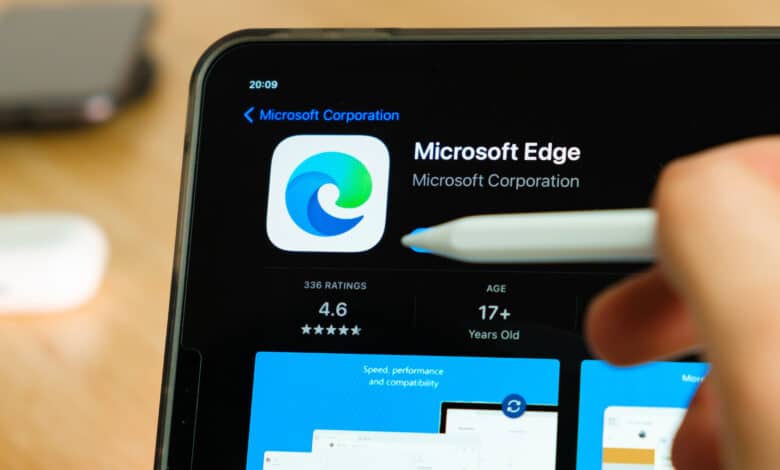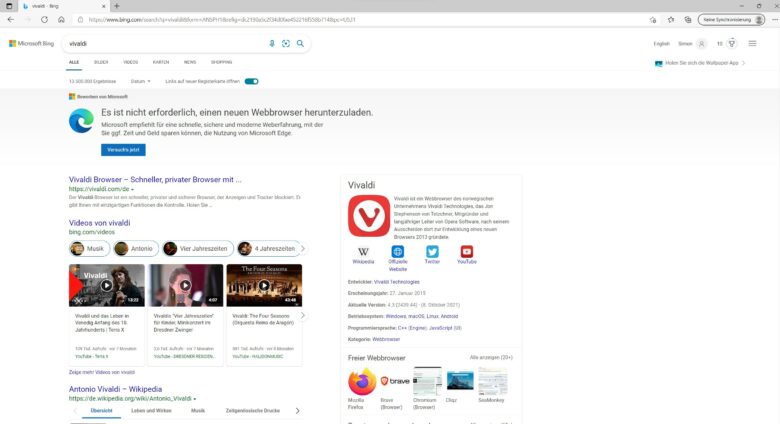
According to media reports from the US, Microsoft wants to make it more difficult to install third-party browsers with its new operating system. Anyone who calls up the website of Chrome’s competitor in the pre-installed Edge browser receives several warnings that are supposed to discourage downloading.
Warnings with unsubstantiated statements
The displayed warnings contain numerous unsubstantiated statements. According to the US media reports, three different warnings are varied. Texts issued include “Microsoft Edge is based on the same technology as Chrome, with the added trust of Microsoft”, “This browser is so 2008! Do you know what’s new? Microsoft Edge” as well as “I hate saving money’, no one has ever said. Microsoft Edge is the best browser for online shopping.” To what extent Microsoft enjoys (or should enjoy) a special trust and to what extent the use of Edge helps to save money on online shopping is completely unclear in this context.
Banner in Bing
In this country, the warnings do not appear when visiting the Chrome site so far. However, a banner is displayed in Bing searches for competing products, in which Microsoft explicitly advises against using another browser. This banner states “It is not necessary to download a new web browser. Microsoft recommends using Microsoft Edge for a fast, secure, and modern web experience that may save you time and money.” Again, it remains unclear how Edge usage will help save money.
Also new is the clear complication of defining a new standard browser under Windows 11. Also with this, Microsoft clearly pursues the goal of establishing Edge as the new standard. The methods used here are clearly reminiscent of the first dispute between different browser companies in the 1990s. Here, Microsoft relied on similar practices and was subsequently overwhelmed with lawsuits. Most of the proceedings ended with out-of-court settlements that cost Microsoft millions. The fact that this approach is likely to be legally problematic is shown by the equivalence to the approach of Apple and Google in their own app stores: Here, too, the competition is systematically disadvantaged, which has been classified as a legal violation in some cases due to the associated restriction of competition.




